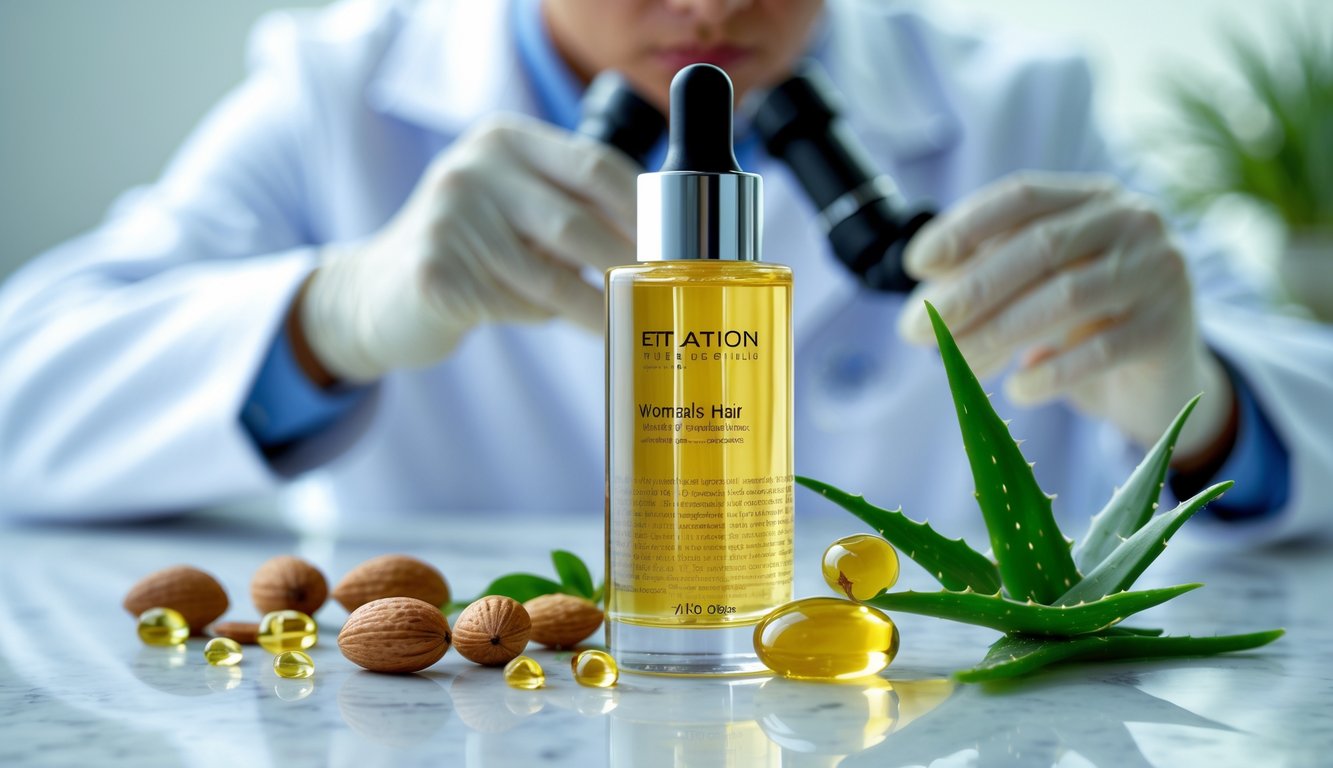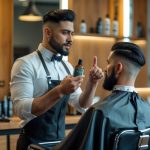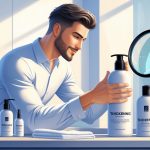
Dermatologists’ New Questions About Hair Serum Ingredients
So, one week caffeine serums are the holy grail, the next week dermatologists are shrugging and saying, “Eh, maybe not.” Shelves are packed with “fortifying” serums—fragrance-free, non-greasy, loaded with weird new ingredients—and yet, nobody really knows what works.
Latest Clinical Studies
Supposedly, peer-reviewed studies should clear things up, but honestly, the latest Journal of Cosmetic Dermatology issue just confused me more. The “hot” new actives—Silybum marianum, Lespedeza capitata—get tested on like 30 people, tops.
Dr. Mian (definitely not a shill) said results “look promising” for CTE, but then mumbled about “outliers” and no clue if it lasts. Some studies crow about “52% more hair density” from a vegan caffeine serum—if you’re lucky, maybe. Others mention “improved quality of life,” but never hit solid clinical marks. Six months of follow-up, then poof, done. I stared at the graphs and just got more confused.
These fancy new active blends sound cool, but nobody’s pretending they’re a breakthrough. Tiny sample sizes, weirdly mixed groups—by the time I get to the appendix, I’m just annoyed.
Concerns Over Safety and Efficacy
Alright, let’s get real. Anyone else actually reading those ingredient lists on hair serums? I keep seeing the same parade: amla, sunflower, caffeine, weird minoxidil knockoffs, and—wait, did they just throw in every oil they could find? No mention of pH, no clue if this stuff’s stable, and dermatologists (the ones I trust, anyway) keep side-eyeing these formulas for skipping basic safety testing. Allergies? Oh, sure, they’ll tell you it’s “gentle,” but my scalp’s been itchy for days.
Honestly, efficacy is just a word brands slap on a dropper bottle. People want thick hair, and companies sell hope—sometimes with a dash of “hydration” that makes my scalp feel like dried-out cardboard. One derm I know quit recommending minoxidil serums after three months of patient complaints—no new hair, just flaky scalps. “Hydrating ingredients” get hyped, but where’s the proof my scalp is less Sahara and more, I dunno, normal?
Sometimes I wonder if these serums do less than tap water. Zero standardization. “Hydrating” for one brand means “itchy disaster” for another.
Fragrance-Free and Non-Greasy Claims
You ever actually believe those “fragrance-free” or “non-greasy” promises? My pillowcase says otherwise. Dermatologists keep getting emails like, “Why does my ‘fragrance-free’ serum smell like a forest fire?”—turns out, botanical oils have their own scents, and “fragrance mask” is just a fancy way to say “hidden irritant.”
“Non-greasy” is a joke. My hair flattens out by noon, and the “lightweight” serums with silicones or fatty alcohols? Sometimes they just dry out my scalp faster. Tried using just a few drops at night like the experts say, still woke up with limp hair. Companies almost never share viscosity stats or real user texture feedback—why would they?
Some derms are now demanding brands show third-party patch test results for “fragrance-free” claims, but nobody’s talking about the natural fragrances from plant oils. If you want answers, good luck.
Potential for Scalp Irritation
Here’s the part that makes me want to scream: even “hypoallergenic” stuff can wreck your scalp. I’ve seen people walk in with flakes, redness, or just straight-up confusion—was it dryness, oiliness, or both? Apparently, there’s a rise in reports of caffeine serums and plant extracts causing mild dermatitis, especially for people slathering it on without patch testing.
Hydrating ingredients like glycerin or aloe? Sometimes they just stick to your scalp and, in hot weather, turn into instant irritation. One derm told me he’s seeing more perifollicular redness from these “non-irritant” serums—vegan ones too. The irony: people pick “clean” formulas to dodge synthetics, then react to natural allergens.
Nobody agrees on patch testing—should you do it formally, or just dab some on your hairline? Irritation takes its sweet time to show up, so figuring out the cause is basically impossible. The more I learn, the less I want to experiment on myself. Would it kill a brand to list an “irritation index” on the label?
How Hair Growth Serums Work
What drives me nuts? Every bottle screams about regrowth, but nobody talks about the science maze behind it. Try scrolling through clinical trials—half the time all you get is “might help,” not “will fix.” These serums are basically hope, caffeine, minoxidil, peptides, whatever’s trendy. They’re supposed to wake up lazy follicles, “reset” your scalp, maybe referee the whole hair cycle mess.
Stimulating Hair Follicles
Why doesn’t any package admit a hair follicle is basically a tiny organ? Everything rides on follicle drama. Minoxidil is still the only FDA-cleared topical for female-pattern hair loss in the U.S. (and yes, I ask every derm I meet). One study said 5% minoxidil foam gave results in 12 weeks, but plenty of people see nothing. Marketing loves to claim peptides, zinc, or biotin “energize” follicles—tried those, still waiting. Most “proof” is a few before/afters and maybe a trichologist quote (“No guarantees, genetics rule,” Dr. Jhin always shrugs).
Caffeine? Social media swears by it, but only a couple German studies ever hinted at follicle benefits. Still, it’s nice to pretend.
Improving Scalp Circulation
Nobody respects the scalp. Listen to a trichologist long enough and you’ll start picturing your follicles gasping for blood flow. My inbox is full of “boost circulation!” pitches. Minoxidil again—vasodilator, started as a blood pressure drug, now maybe helps oxygen and nutrients get to sleepy follicles.
Then you’ve got caffeine, rosemary extract, menthol—supposed to help circulation. I’ve used serums that tingle, and sure, it feels like something’s happening, but science? Not exactly conclusive. Some clinical sources say scalp massage with serum is “potentially beneficial”—honestly, scalp massage alone increased blood flow by up to 54% in one study (Frontiers in Physiology, 2016), so maybe it’s not about the serum at all. Sometimes I think stressing about ingredients does more harm than poor circulation.
Supporting the Hair Growth Cycle
This is where things get fuzzy: anagen, catagen, telogen—growth, transition, shedding. Dr. Hope Mitchell once told me, “Serums try to prolong the anagen phase, but nobody’s timing it with a stopwatch.” Minoxidil might extend that growth period, so hair doesn’t bail early.
Peptides could help keratin production, at least according to INCI Decoder, but good luck finding solid, non-sponsored data. The hair cycle is personal—hormones, stress, diet, all of it. I want an instant fix, but apparently, serums just help nature take its sweet time.



